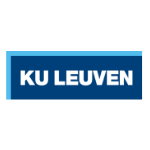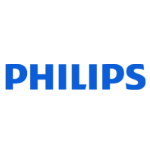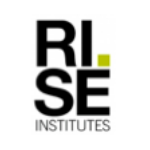Preparing children at home for MR scanning with a cosmonautic virtual reality fairy tale
COSMO@HOME is developing an app for children to prepare at home for upcoming MRI scans, so they won’t need sedation during the actual scan. The app will contain different personalised modules, including games that teach children to lay still or breath deeply, a virtual reality version of a scan and information for parents. The aim is to reduce sedation of children taking MRIs by 20%.
Origins
Sedating children for MRIs increases hospital time and costs, and can pose health risks. KU Leuven has successfully addressed this challenge with a novel preparation protocol to immerse children in a fantasy story told in person by a trained staff member. The aim of this project is to eliminate the need for specially trained staff and to scale up the COSMO protocol by creating a COSMO app that can be used by the children and their parents at home.
Team
KU Leuven will lead the project and head the pilot and field study. Philips will be involved with prototype development and testing of the app, and will take care of business development. RISE will do the app development and will help with developing features that motivate usage among different age groups. RWTH is responsible for modelling and implementing the virtual reality (VR) environment, mimicking the hospital, MR unit and scan sessions.
The project
The current standard clinical practice in most hospitals is to sedate young children when they need to undergo a Magnetic Resonance Imaging (MRI) scan, as a way to avoid anxiety, or errors in the scan caused by movement. The goal of the COSMO@HOME project is to create a smartphone app that lets children and their parents prepare at home for an upcoming scan. This app will consist of videos, training exercises, and virtual reality (VR) modules that allow users to “walk around” the MR unit of the hospital they will visit and experience a virtual scan in the familiar setting of their own home.
The videos and training exercises will be based on the existing COSMO protocol (developed by KU Leuven) and the FIT-for-MRI-framework (Familiarize, Inform and Train) developed by Philips. The COSMO-app will be tested in three Belgian hospitals during a field trial, to evaluate its effectiveness, efficiency and clinical impact. RISE and RWTH will be the technical partners.
Hospitals, radiology and pediatric departments are the intended customers, as the app can improve their workflow and reduce hospital costs. We anticipate being able to reduce the need for sedation to a large extent, which would save Europe millions a year in health care costs.
Impact
COSMO@HOME brings added value to:
- Pediatric patients and their parents, by reducing potential health risks of sedation and reducing waiting times and the length of hospital-stays.
- Hospitals, by reducing costs and improving patient/staff satisfaction.
- Society and payers, by reducing healthcare costs.
Why this is an EIT Health project
This project aligns with the EIT Health Focus Area of “Bringing Care Home” because it allows children to prepare for the frightening experience of an MRI scan in their homes, a safe space, in the presence of their parents. It is also in keeping with the Focus Area of “Improving Care Pathways” because it promises to reduce the need for potentially risky sedation for children.
Members

Partner classification: Education, Research
KU Leuven (together with University Hospitals Leuven) is a research-intensive, internationally oriented university that carries out excellence-driven research in health and care and is dedicated to build bridges between science, society and industry.


Partner classification: Business
At Philips, our purpose is to improve people’s health and well-being through meaningful innovation. We aim to improve 2.5 billion lives per year by 2030, including 400 million in underserved communities.
We see healthcare as a connected whole. Helping people to live healthily and prevent disease. Giving clinicians the tools they need to make a precision diagnosis and deliver personalized treatment. Aiding the patient's recovery at home in the community. All supported by a seamless flow of data.
As a technology company, we – and our brand licensees – innovate for people with one consistent belief: there’s always a way to make life better.
Philips Electronics Nederland B.V.
Philips Electronics Nederland B.V., Boschdijk 525, 5622 Eindhoven, Netherlands
Key Activities in Corporate Innovation
Med Tech, ICT


CLC/InnoStars: Scandinavia
Partner classification: Business, Research
Partner type: Associate Partner
RISE Research Institutes of Sweden is a network of research and technology organizations. In global cooperation with academia, enterprise and society, we create value, growth and competitiveness through research excellence and innovation.
RISE Research Institutes of Sweden
RISE Research Institutes of Sweden, Mäster Samuelsgatan 60, 111 21 Stockholm, Sweden
Key Activities in Corporate Innovation
Pharma, Med Tech, ICT, Consumer products, Nutrition
Key Activities in Business Creation
Technology Transfer, Business coaching, Testing & Validation
Key Activities in Education
Entrepreneurship training

CLC/InnoStars: Germany
Partner classification: Education, Research, Tech Transfer, Clusters, Other NGOs, Hospital / University Hospital
RWTH Aachen University and its hospital (focus on patient-oriented medicine & nursing care) provide leading research, innovation and education within the core themes of EIT Health. Our industry-need-driven competence centres foster entrepreneurship
RWTH Aachen University
RWTH Aachen University, Templergraben 55, 52062 Aachen, Germany
Key Activities in Research and Developement
Biomedical engineering, Life Sciences, Social sciences / health economics, Clinical research
Key Activities in Business Creation
Incubation, Technology Transfer, Testing & Validation
Key Activities in Education
Entrepreneurship training, Technical faculties, Medical faculties, Healthcare professional education/training